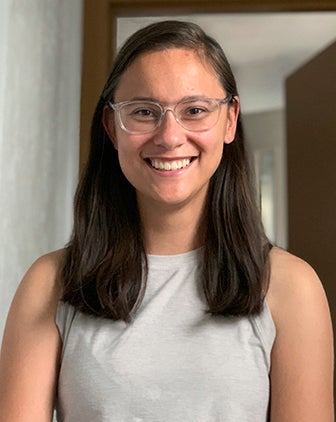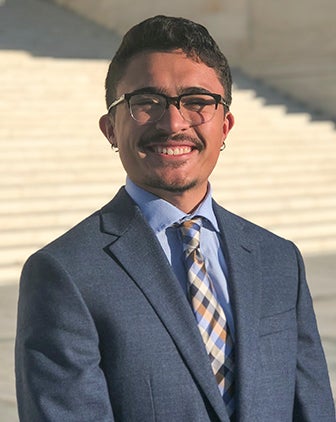
Subscribe to Pittwire Today
Get the most interesting and important stories from the University of Pittsburgh.Counseling Center Director Responds to Students, Sees Growth Potential in First Year
Addressing mental health challenges on college campuses continues to be a topic of national conversation. In recent years, college and university counseling centers have reported rapidly increasing demand for their services, to the tune of 30-40%, according to the Center for Collegiate Mental Health’s 2018 Annual Report. Outlets from The Atlantic to Inside Higher Education, and academic journals such as Academic Psychiatry, have reported on this trend over the past decade.
At Pitt, where Jay Darr is in his first year as director of the University Counseling Center, a chief concern among students has been transparency about changes and staffing. Beginning with his arrival in February 2019, Darr has been taking time to listen to students and meet frequently with a growing team of counseling center staff to come up with solutions and implement them.
And though creating positive change takes time, these efforts are getting noticed.
“We’ve had a lot more communication with the counseling center around policies, services, access. In previous years that wasn’t quite the case,” said Julia Lam, a senior studying rehab science and psychology and president of Pitt’s chapter of Active Minds, a national student group devoted to mental health advocacy and awareness.
In September, the group had counseling support onsite the entire day for an event around suicide prevention called Send Silence Packing, which Lam called “amazing.”
“Dr. Darr brings a very welcoming presence and that shows through in the changes that we’re seeing,” she said.
In part due to student demand, the list of counseling center services has expanded since Darr joined the team last winter.
Serving many needs
As a first order of business, Darr and his staff streamlined the center’s intake process.
Before, a student going to the center during drop-in hours completed a screening and had a preliminary meeting before being able to schedule an appointment a few weeks later. Now, those processes are combined into one. Students are seen by a counselor and discuss a care plan the same day they drop in.
The flow of people coming to the center changes depending on the time of year. Like many other centers across the country, October is the counseling center’s busiest month. But Darr said that as a result of the initial streamlining changes to the intake process, within his first few months, they were “able to eliminate the waitlist towards the end of the spring semester.” Continuing that improvement is something Darr and the center’s staff will keep striving for.
On a campus of 28,000 students, people arrive with varying degrees of experience and expectation about what a University Counseling Center can and should do for them. That includes ideas about how often someone can be seen by a counselor or therapist.
In the U.S., college students’ two top concerns are anxiety and depression, according to Inside Higher Education. Since 2009, anxiety has been steadily on the rise. These are mental health concerns that tend to be treated most effectively with a combination of long-term, individually tailored therapy to help manage symptoms, and medication.
In an ideal world, Darr said, college counseling centers across the country would be staffed and supported to provide long-term care for every student who wanted it, right on campus at no additional cost. Unfortunately, that’s not the way most centers are designed.
At Pitt, there is still a short-term, time-limited model for therapy that the center can offer students right on campus, “but we are better prepared now than ever to help find longer term solutions when needed,” Darr said.
What’s new
“Some students come in and say, ‘I know what therapy is all about and I just want some referrals because I need to get connected to someone in the community,’” said Darr.
This year, a new resource is helping them do that.
ThrivingCampus is an online directory for outpatient services akin to Psychology Today’s popular portal that lets people search for therapists in their community—except that ThrivingCampus is tailored explicitly for college students.
It’s something the center’s staff and a lot of students, including Lam, are very excited about.
“Many other college campuses just don’t have the abundance of resources that we have here in Pittsburgh,” said Darr, who knows this first hand.
A multi-pronged approach
The University Counseling Center’s services are open to all students—graduate or undergraduate, full- or part-time—in any school on the Oakland campus, but sometimes, a struggling student will seek support within their academic unit or department.
Cheryl Paul, director of student services in the Swanson School of Engineering, recently got a grant from the Provost’s office to train staff and faculty on recognizing and responding to students struggling with mental health. The focus of the grant is to map out a multi-tiered plan that ultimately empowers members of the University community to begin inviting conversation around mental wellness as students plan and discuss their academic experiences.
“Students in the STEM fields experience mental fatigue just like any other student,” Paul said. “In creating new systems of personalized support, our underserved students who have invisible disabilities will experience success in their studies and prepare for life beyond the University.”
All Pitt staff and faculty can also learn more about how to support student wellbeing through the Care and Resource Support Team, a multi-departmental collaborative approach to helping students struggling with academic, medical, personal and all other types of needs and challenges.
In the late 1990s, Darr worked in community health, helping Black communities in the Pittsburgh area access better care. Now, part of his mission at Pitt is to deepen community connections for students, make the ties stronger and the handoffs warmer, which ThrivingCampus is helping counseling centers do across the country.
A new platform called Therapy Assistance Online lets students take a more self-directed approach to stress management, mindfulness, relationship skills, problem solving and more with online educational modules and practice tools.
Also new this year is “Let’s Talk” popup counseling sessions: free, 15-minute drop-in consultations with a counselor that happen weekly, all over campus. Schedules are generally posted by the first week of each month.
It’s all a way to bring the counseling center to students, Darr explained. Embedded counselors in residence halls began in October and are helping expand the reach of the counseling center beyond its offices in Nordenberg Hall.
“You can’t isolate something so important,” said junior Eric Macadangdang. “For a student who may not recognize when they need to reach out and talk to someone, or for someone who has reservations about stepping into the counseling center for whatever reason, it becomes easier when they have a counselor right where they live, where problems are more likely to come up in the first place.”
Macadangdang is studying urban studies and the history and philosophy of science. He also serves as a board member for the Student Government Board and as a student representative on the board’s Mental Health Task Force. Like Lam, he has been pleased so far with the level of engagement student groups have been offered in the planning and coordination of some of these new counseling center initiatives.
“If you’re providing a service without input from the people you’re serving, in this case, the students, it’s going to be incomplete,” said Macadangdang.
That’s something Darr has intuited and begun addressing—and a problem that students across the U.S. have called out in regards to creating additional positions in counseling centers and focusing more on diversity in hiring. Just 3.2% of university and college counseling center directors identify as African American, for example, according to a 2018 survey.
“We have very different, multiple identities on our staff currently, and that’s a positive” in terms of being able to offer culturally and socially sensitive care, Darr added—himself included.
Darr has a military background, having served as an officer in the Army National Guard. He was a student-athlete at West Virginia University. He worked in community mental health, then with a large insurance company on both the care management and the training sides, and did a stint in the energy sector so he has familiarity with the corporate world. He returns to his native Pittsburgh from the University of Texas counseling center, where the field of college counseling piqued his interest in recent years.
What’s next
Darr plans to see clients this fall, in addition to workshops with veterans and other identity-based campus groups starting later in the semester.
And new clinicians have recently brought the total counseling center staff up to 24, “which is actually one of the better ratios of clinicians to students among colleges of this size,” said Macadangdang. “Of course there’s always room for more.”
Darr is in discussions with colleagues in the health sciences to look at embedding counselors in some academic programs, in addition to the residence halls. The embedded model is supported in part by student fee adjustments announced in May.
Macadangdang is hopeful. Especially because of the feeling that, as Darr put it, “Everybody is responsible for student wellbeing, not just a counseling center.”
Lam is excited about changes to the University Counseling Center’s website that have made it more accessible, navigable and easier to find immediate resources, she said.
“They’ve made videos on what to expect when you go to the counseling center, which makes it seem less scary. I’ve seen new Active Minds members during first meeting of the year who seemed to really appreciate that.
“Being able to have more communication with the center, directly with Dr. Darr, makes me as a student leader feel more confident,” said Lam. “It makes me feel that the information I’m giving students is correct and that their voices are being heard. It’s empowering.
“I hope that two-way line of contact continues.”
Any student interested in services at the University Counseling Center or requiring support for an urgent or crisis situation may come to the center at any time during drop-in hours to speak with a clinician.
If you are in an emergency situation where danger is imminent and immediate help is required, call 911 or the Pitt Police at 412-624-2121.



